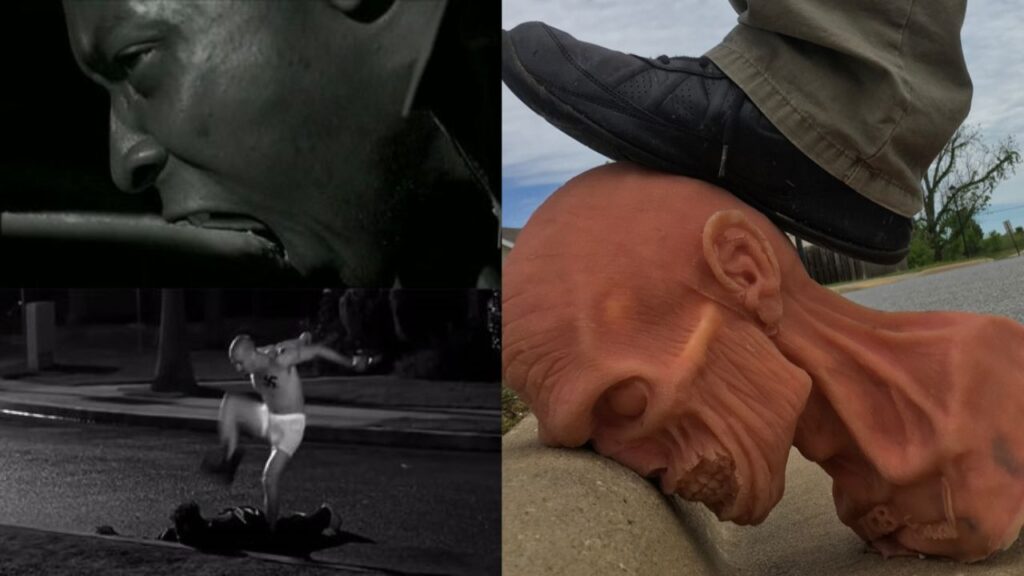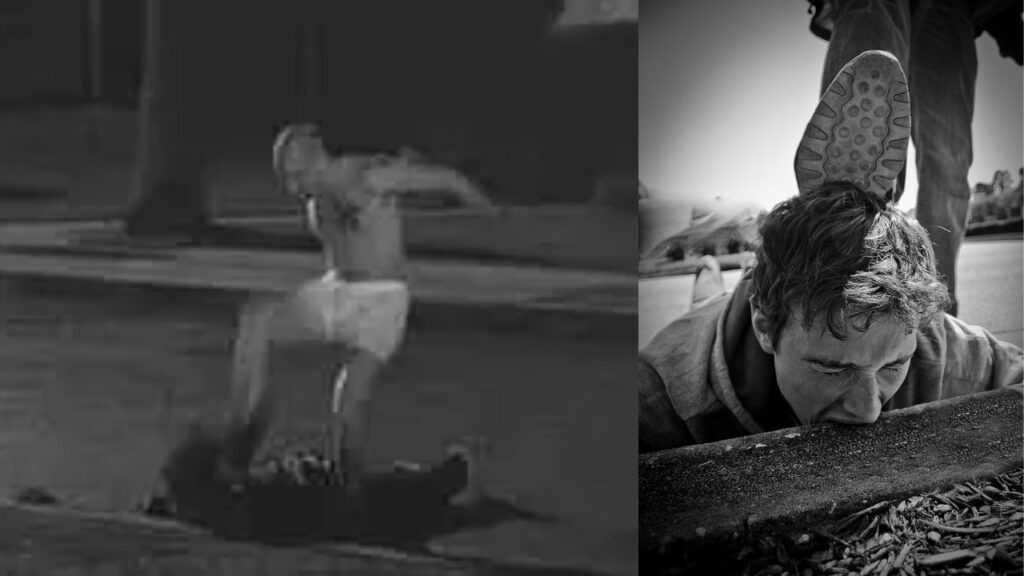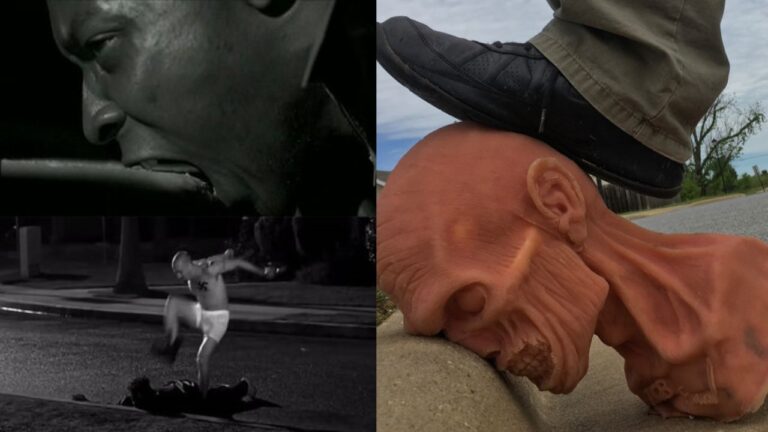The act of curb stomping, or “biting the curb,” is a violent and brutal assault that can have severe, lasting impacts on victims. This heinous act doesn’t just leave physical scars, but also deep emotional and psychological wounds that can take a lifetime to heal. This blog post will discuss the terrifying act of curb stomping, the aftermath of such an incident, and the resulting psychological trauma.
What Is The Act of Curb Stomping?
Curb stomping, also known as curbing or curb checking, is a horrifying act of violence. In this vicious attack, the perpetrator forces the victim’s face onto a hard curb edge. The attacker then stomps on the back of the victim’s head with their full weight.
This brutal act often results in severe injuries. Victims may endure broken teeth, fractured jaws, deep facial lacerations, head injuries like concussions, internal bleeding in the brain, and even a coma. Disturbingly, the unnatural bend of the victim’s neck during the attack can also lead to spinal cord damage.
Bite The Curb Aftermath
The aftermath of a curb stomp attack is devastating and extends far beyond the immediate physical injuries. Victims may suffer from broken teeth, fractured jaws, and potential head injuries. However, the real impact is often psychological. Victims may experience intense fear, anxiety, and even develop post-traumatic stress disorder (PTSD). This can manifest as flashbacks, nightmares, and an overwhelming feeling of insecurity. Trust becomes a scarce commodity, leading to solitude and strained relationships.

Some victims might resort to drugs or alcohol as a coping mechanism. Recovery is a long, arduous process that requires more than medical attention. Professional therapy often plays a crucial role in helping victims process their trauma, manage PTSD, and rebuild trust. Bystanders who witness such violent incidents have a vital role in calling for help, encouraging victims to seek professional assistance, and breaking the cycle of suffering. A curb stomp is a stark reminder of the lasting impact that violence has on its victims.
Psychological Trauma
The psychological trauma following a curb stomp attack is often more enduring than the physical wounds. Constant fear and anxiety become a new norm for victims, causing them to perceive danger in every corner. Panic attacks become frequent, serving as physical manifestations of their inner turmoil. Many victims develop PTSD, reliving the traumatic event through flashbacks and nightmares. Avoidance behaviors can lead to feelings of isolation, and broken trust makes forming close relationships challenging, resulting in loneliness.
Overwhelmed by their emotions, some victims turn to drugs or alcohol as a coping mechanism, leading to further complications. Healing from such trauma is a long, difficult journey. However, therapy can provide much-needed support. Therapists help victims understand their emotions, manage PTSD symptoms, and regain a sense of safety and hope, guiding them towards a brighter future.
Seeking Help After A Curb Stomp
Victims of a curb stomp need immediate physical and psychological help. Calling 911 is the first step to ensure proper medical care for physical injuries. However, the emotional wounds are equally serious and require professional intervention. Therapists can help victims manage PTSD and anxiety, re-establish trust, and regain a sense of security.
Support can also be found in hotlines that provide immediate help and connect victims to mental health experts. Additionally, support groups offer a safe place for victims to share experiences and draw strength from others who understand their pain. Bystanders can also play a significant role by promptly calling 911 to prevent further violence. Encouraging victims to seek professional support represents a significant step towards healing.
Bite The Curb Real-Life Cases
Curb stomping is known for its extreme violence, as several real-life cases attest. Marinus Schöberl, a 16-year-old from Germany, was brutally killed by young neo-Nazis in 2002. The main perpetrator served eight years in prison for this crime.

Similarly, in Tacoma, Washington, Randall Townsend was murdered in 2003 by Kurtis William Monschke, affiliated with a white supremacist group. Monschke received a life sentence without parole. Another incident in Salt Lake City, Utah, involved Dane Hall, who was curb-stomped outside a gay bar in 2011, resulting in severe injuries. These cases underscore the devastating impact of curb stomping, leading to significant physical and emotional harm.
Bite The Curb Legal Consequences
The legal consequences of curb stomping are severe. As the cases of Marinus Schöberl, Randall Townsend, and Dane Hall demonstrate, the perpetrators often face lengthy prison sentences or even life imprisonment. These cases highlight the brutal aftermath of curb stomping and the stringent legal penalties for those who commit such violent acts.
Available Support For Victims
Victims of crimes, including curb stomping, have access to numerous support services. National hotlines provide immediate assistance, and online resources are also available. In emergencies, victims should contact 911 or their local police.
Each state has programs offering assistance to crime victims, including help with compensation applications. Elderly victims of financial fraud can access help through the National Elder Fraud Hotline. Additionally, the International Terrorism Victim Expense Reimbursement Program (ITVERP) can reimburse victims of terrorism and their families for related expenses. These resources exist to offer support during difficult times.
Conclusion
Curb stomping is a terribly violent act that causes severe harm to its victims. Cases like those of Marinus Schöberl, Randall Townsend, and Dane Hall show how devastating these aggravated assaults can be, leaving lasting physical and emotional wounds. Beyond the immediate injuries like broken teeth and fractured jaws, victims often suffer from long-term fear, anxiety, and PTSD.
While legal consequences can punish those responsible, true healing requires medical treatment and therapy. By offering support and spreading awareness, we can help victims recover and prevent such violence from happening in the future.

